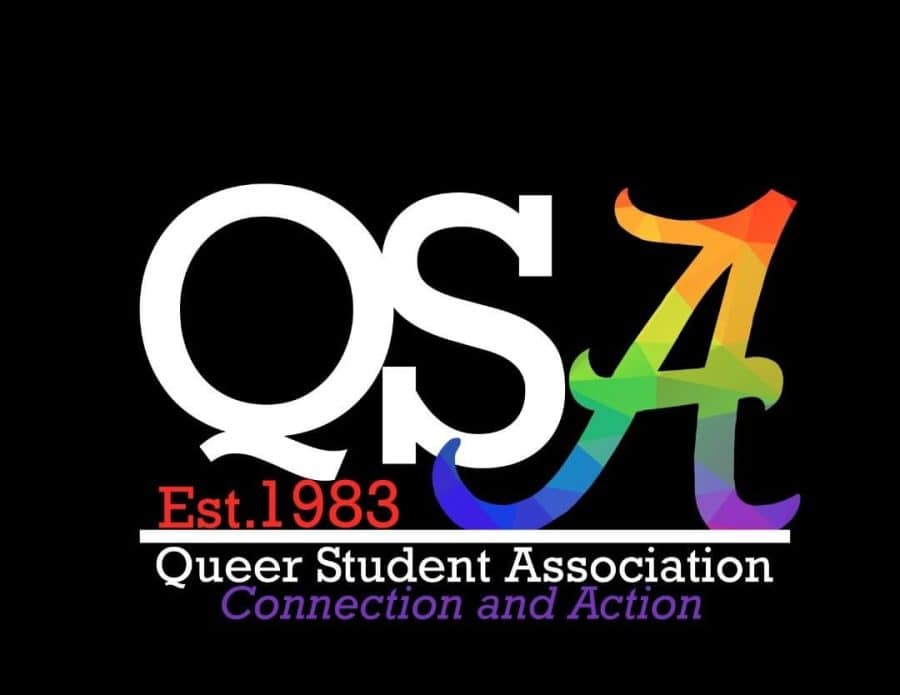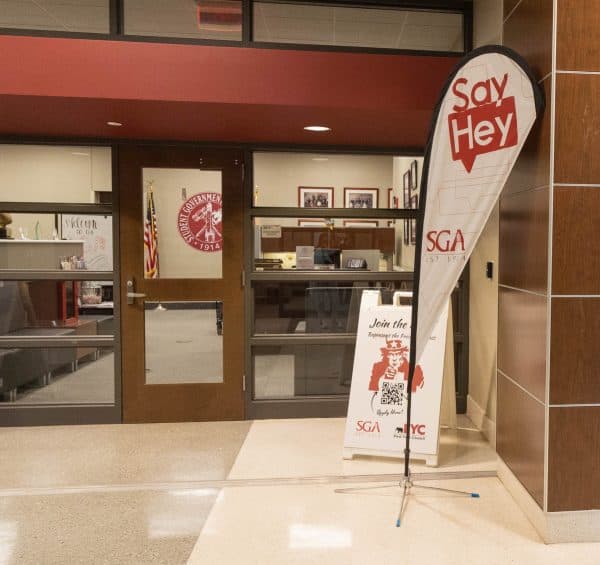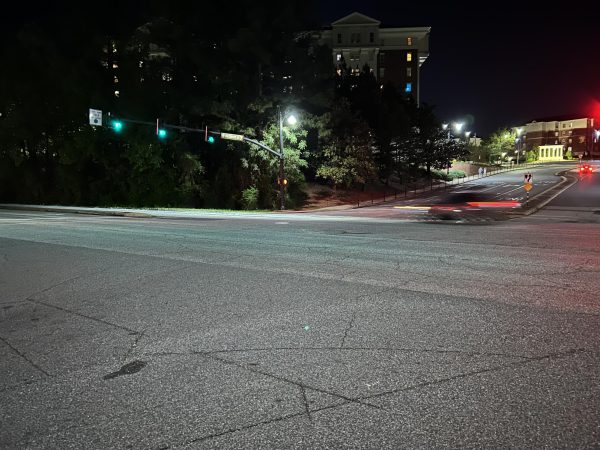QSA hosts State of the Queer Union
November 16, 2022
The University of Alabama’s Queer Student Association hosted its annual State of the Queer Union event on Nov. 9.
Tyler Tannehill, QSA director of community partnership, moderated the panel, which took place at the Intercultural Diversity Center.
The panel of speakers included the QSA faculty advisor Seth Stewart, who also serves as an instructor of English and gender and race studies; Russell Peterson and Sarah Sahn, research instructional services librarians; and Jennifer Turner, the assistant director of clinical services for the UA counseling center.
The panelists discussed a variety of topics, including University support for LGBTQ students, anti-trans legislation in Alabama, and advice for students who want to make change to the queer student experience at the University.
Supporting marginalized students
One of the questions posed to the panel was what the University can do to better support marginalized students.
Peterson said that it “would be really nice” if the University acknowledged marginalized students and their experiences.
“I feel like for any like senior figure from like UA administration to come and just like be in front of an audience. Just like how to express just the tiniest bit of empathy or solidarity for like what your students go through at UA and I think would be just nice,” Peterson said.
Sahn said in her undergraduate experience at Tufts University, there were more physical spaces for queer individuals.
“It’s just I think having just like more physically welcoming space, you know and more visibility, so that like, people come on to campus and they’re like, yes, there are people here and they are welcome,” Sahn said.
The panelists all said that when it comes to efforts making campus a more welcoming place to LGBTQ students, it was important to consider every community’s issues.
“Just showing up for people whose needs are not your needs,” Stewart said.
“We forget that that we’re all more than one thing,” Turner said. “We forget that we connect with each other on so many different levels, and that we should and that my problem is your problem. His problem is their problem.”
Stewart said he is an advocate for leading with his queerness.
Anti-trans legislation
To close out the panel, the panelists discussed recent anti-trans legislation passed in Alabama and its effects.
Senate Bill 184 was passed on April 7, 2022 and “prohibits the performance of a medical procedure or the prescription of medication, upon or to a minor child, that is intended to alter the minor child’s gender or delay puberty.”
Turner said these changes can impact the mental healthcare that people receive, especially youth. She also said the legislation would impact gender reaffirming care for transgender and non-gender-conforming students.
Peterson, a member of the Faculty Senate, said he spoke to the Alabama Legislature about how passing certain laws would affect faculty and staff recruitment for the University. He said he feels “the laws that are being passed in Alabama are definitely impacting our ability to recruit like talented folks from across the country to come work here.”
Sahn said the laws would also affect the recruitment of out-of-state students.
“Women identified students and cis women are going not be super keen on coming to a state where, you know, your bodily autonomy is restricted,” Sahn said.
Peterson said people need to be acting up, adding that while he doesn’t know how the legislation would affect the University, he does know how the University community can affect the legislation.
“When these laws come back up from votes again, I feel like we need to be renting buses. We need to be going to Montgomery. People need to be acting up, causing trouble,” Peterson said.











